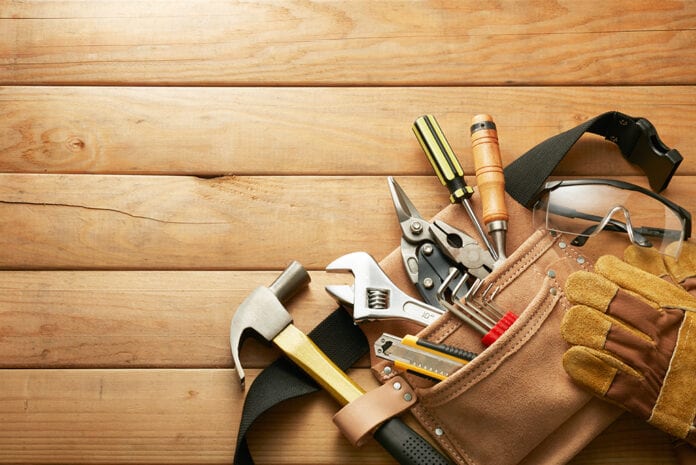Want to Become a ‘Handy Andy’? Here’s Where to Start
Ten Steps To DIY Success & The Tools You’ll need
Home improvements are high on the nation’s agenda for the year ahead. In fact, a survey1 by trade and DIY supplier, SGS Engineering reveals that four fifths (79%) of homeowners have at least one property improvement project on their ‘to do’ list for the year ahead.
Manchester is the DIY capital, with 88 per cent stating their intentions to tackle home improvements this year. London (87%), Glasgow (86%) Bristol (81%), and Nottingham (79%) made up the top five.
Top rooms that Brits are looking to redo include the kitchen (16%) and the bathroom (15%). One in ten (10%) said they are planning a home office conversion project this year.
A third (32%) said they have committed to doing more DIY because they have been spending more time around their house and have seen jobs that they want fixing.
One in four people (25%) have been inspired by seeing aspirational home imagery on social media, while 27% said that watching Grand Designs and similar home shows on TV had influenced their DIY projects.
But while enthusiasm may be running high, if you’ve never tackled a DIY project before where do you start?
“It’s incredibly satisfying to fix something up or make something from scratch, but doing it well isn’t easy” explains Dave Gordon, General Manager at SGS Engineering.
“The trick with DIY is to start small, make sure you have the right tools – and know how to use them, and ask for help if you need it. Practice makes perfect too, so keep trying things and you’ll see that your confidence and skills do improve.”
Ten Steps to DIY Success For Beginners
1. Keep a list of all the DIY projects you want to do. Try to order these by complexity if you can.
2. Get yourself some DIY books – such as the Collins Complete DIY Manual – and bookmark pages or sections that correspond with your projects.
3. Start small – change a light bulb, tighten door hinges, put together some basic flat pack furniture together etc. Don’t be tempted to go too ambitious at first!
4. Look at YouTube for DIY guides – people with at least 50,000 subscribers tend to have the most useful content. A few good YouTubers to check out include, The Carpenter’s Daughter, The Restoration Couple, and Homedit.
5. Get comfortable with key tools – screws, hammers, spirit levels etc. Practice hammering in nails, drilling in screws etc. using a piece of scrap wood. It’ll help you feel less nervous when it comes to doing it for real on your wall.
6. As you move down your DIY to do list, choose projects that are a bit more of a challenge but are still relatively low risk. For example, hanging a picture or painting a wall – if they don’t work out as you’d hoped, it’s fairly quick and easy to fix.
7. For any more complex projects, make sure you do a project plan before you start. List each part of the job, what you need to practice, what you need to buy etc.
8. If you know someone who is good at DIY, ask them to supervise you (even if it is via a video call) as you tackle a new skill or an unfamiliar job. It’s reassuring to have someone experienced offering a bit of advice when you need it most.
9. For bigger jobs, have a backup plan and know your limits. Contact a recommended plumber, electrician, or a builder before you start. If you don’t know anyone, sites that Chekatrade can be useful at finding people with good review. There is absolutely nothing wrong with getting professional help when you need it, and it’s better to call in the experts before you knock down a wall or create a lot of mess that could be costly to fix.
10. As with anything, to get better at being handy, you’ll need to keep practicing! Keep updating your to-do list, ticking off jobs and adding useful notes or tips for the future.
Ten Basic Tools You’ll Need To Get Started
1. Work gloves
5. A handsaw
10. A cordless drill
There is more information on why you need each of these tools, how much they typically cost, and what to use them for here: https://www.sgs-engineering.com/help-advice/buying-guide-must-have-tools-for-diy/.
“Being ‘handy’ can feel like something that other people are just naturally good at, but the truth is that even the most avid DIYers had to start somewhere, and they’ve built up their skills over time.
“Remember to plan ahead and be patient. Good luck!” Dave Gordon, General Manager at SGS Engineering added.

| [donate]
| Help keep news FREE for our readersSupporting your local community newspaper/online news outlet is crucial now more than ever. If you believe in independent journalism,then consider making a valuable contribution by making a one-time or monthly donation. We operate in rural areas where providing unbiased news can be challenging. |






















